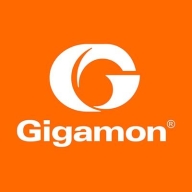

Gigamon Deep Observability Pipeline and Devo compete in the network observability and analytics space. User reviews indicate Devo often has an edge due to its superior data analytics and real-time event correlation features.
Features: Gigamon Deep Observability Pipeline offers deep packet inspection, powerful network traffic visibility tools, and enhanced network security optimization. Devo provides handling large volumes of log data, real-time analytics, and immediate insights into network operations.
Room for Improvement: Gigamon could enhance data integration capabilities, simplify configuration processes, and improve customer support. Devo needs better scalability, faster customer support response times, and more efficient initial setup processes.
Ease of Deployment and Customer Service: Gigamon's deployment is straightforward but complex for advanced configurations, with mixed customer service reviews. Devo's deployment requires significant initial setup, with generally responsive customer support despite occasional delays.
Pricing and ROI: Gigamon's high setup costs are justified by an enhanced return on investment through network security and performance optimization. Devo's pricing is also high, yet users report significant ROI due to advanced analytics capabilities and operational efficiencies.
The technical support by Gigamon Deep Observability Pipeline is good because it has a local architect in my area.
Integrations with other sandboxes could be improved to better interpret data using AI and machine learning models.
When they see a spike in a line chart for a failed login, which could be a true or false attempt, they can click that spike, and a table widget on the same active board instantly populates with raw logs of data for those specific failed logins.
The Pipeline's Comprehensive Insights into data flows have helped improve operational efficiency and security.
| Product | Market Share (%) |
|---|---|
| Devo | 1.1% |
| Gigamon Deep Observability Pipeline | 0.4% |
| Other | 98.5% |
| Company Size | Count |
|---|---|
| Small Business | 8 |
| Midsize Enterprise | 4 |
| Large Enterprise | 11 |
| Company Size | Count |
|---|---|
| Small Business | 3 |
| Midsize Enterprise | 1 |
| Large Enterprise | 5 |
Devo is the only cloud-native logging and security analytics platform that releases the full potential of all your data to empower bold, confident action when it matters most. Only the Devo platform delivers the powerful combination of real-time visibility, high-performance analytics, scalability, multitenancy, and low TCO crucial for monitoring and securing business operations as enterprises accelerate their shift to the cloud.
Gigamon Deep Observability Pipeline is a comprehensive network visibility solution that provides real-time insights into network traffic. It offers SSL inspection and mobile network monitoring for traffic monitoring purposes. The solution optimizes networks, aids in security inspection, and improves firewall performance. It is praised for its performance, power, straightforward integration, stability, and ease of initial setup.
With Gigamon, organizations can gain complete visibility into their network traffic, identify potential threats, and take proactive measures to prevent them. The solution is ideal for organizations of all sizes, including enterprises, service providers, and government agencies.
We monitor all Security Information and Event Management (SIEM) reviews to prevent fraudulent reviews and keep review quality high. We do not post reviews by company employees or direct competitors. We validate each review for authenticity via cross-reference with LinkedIn, and personal follow-up with the reviewer when necessary.